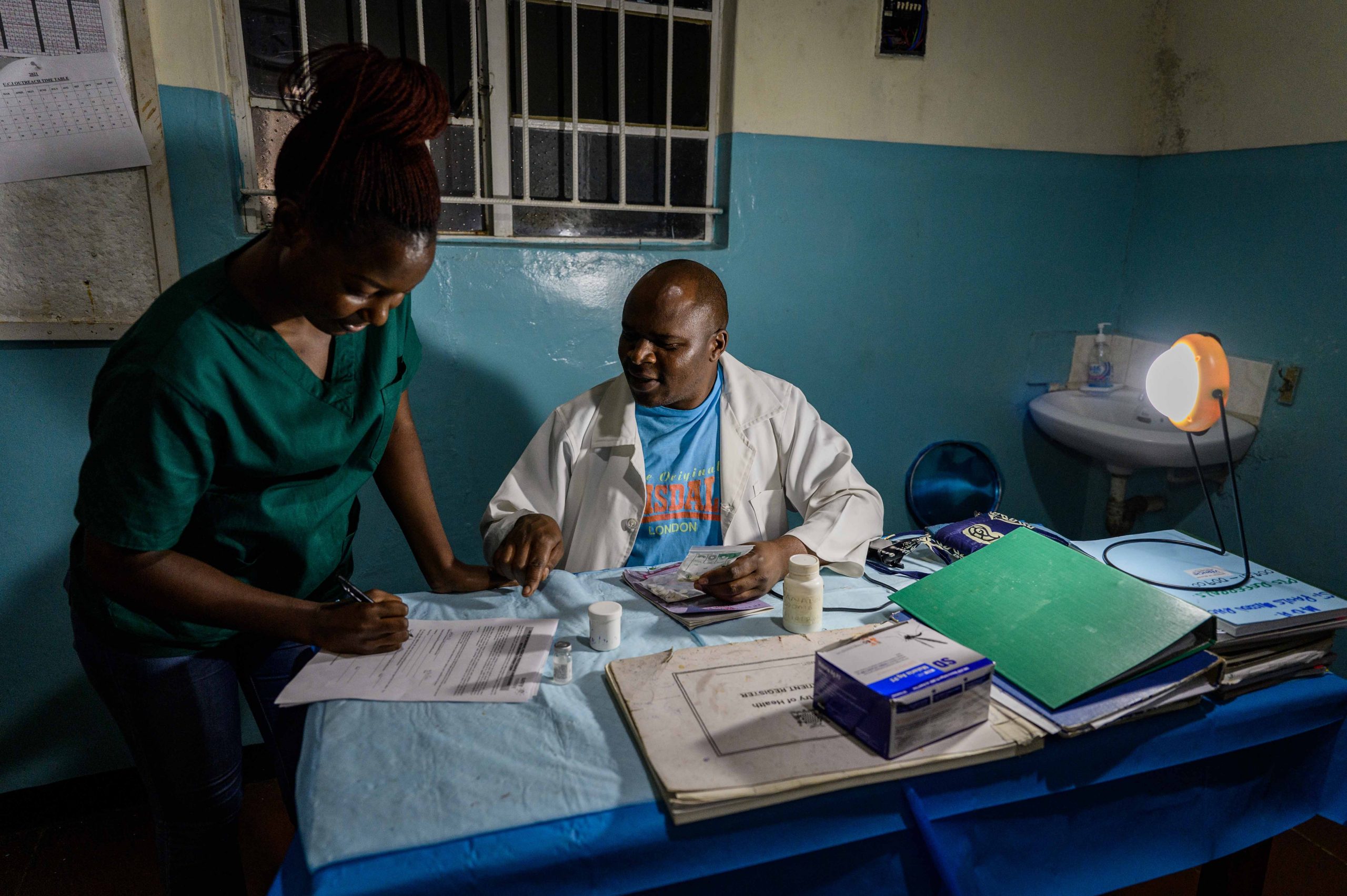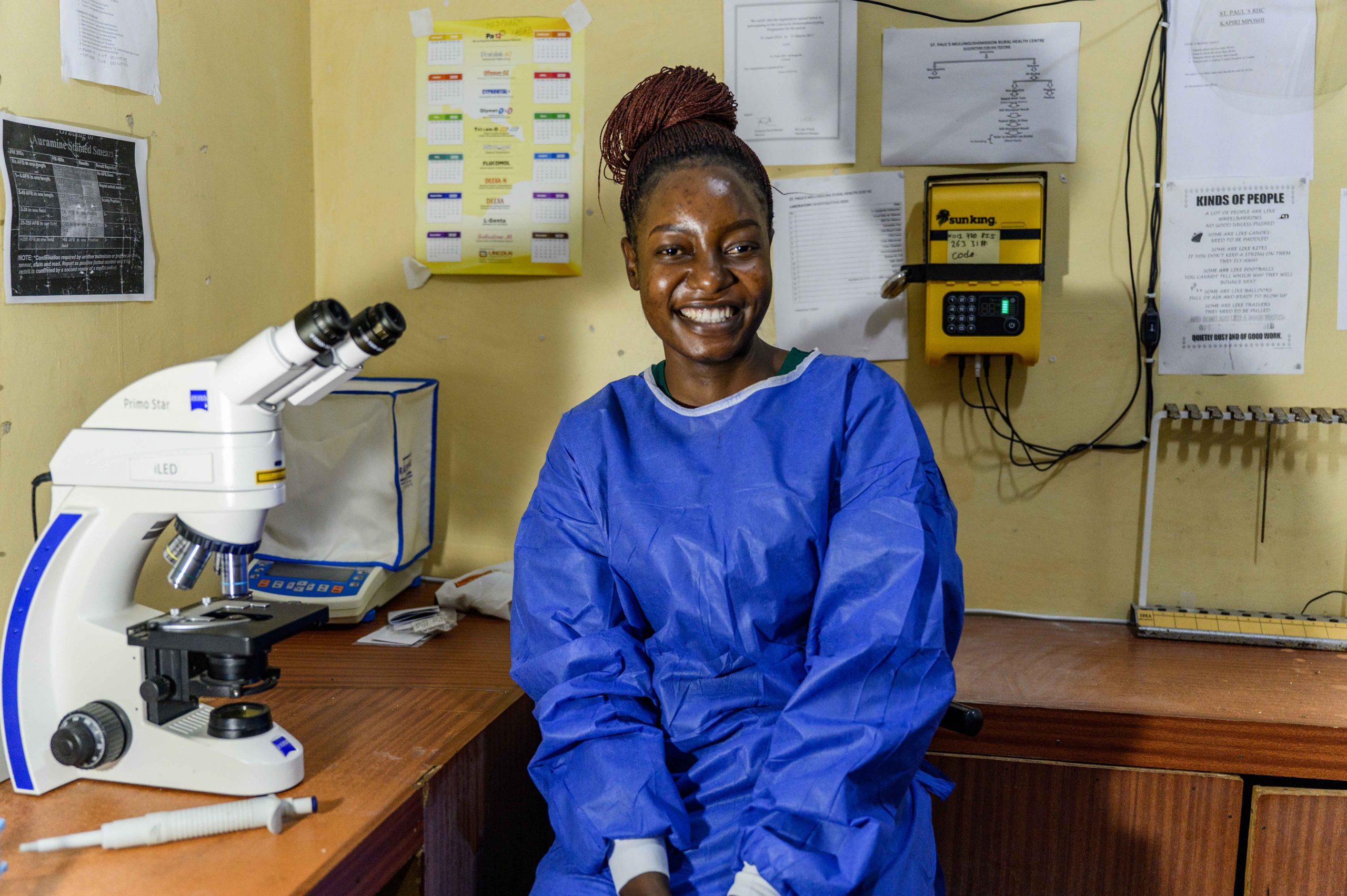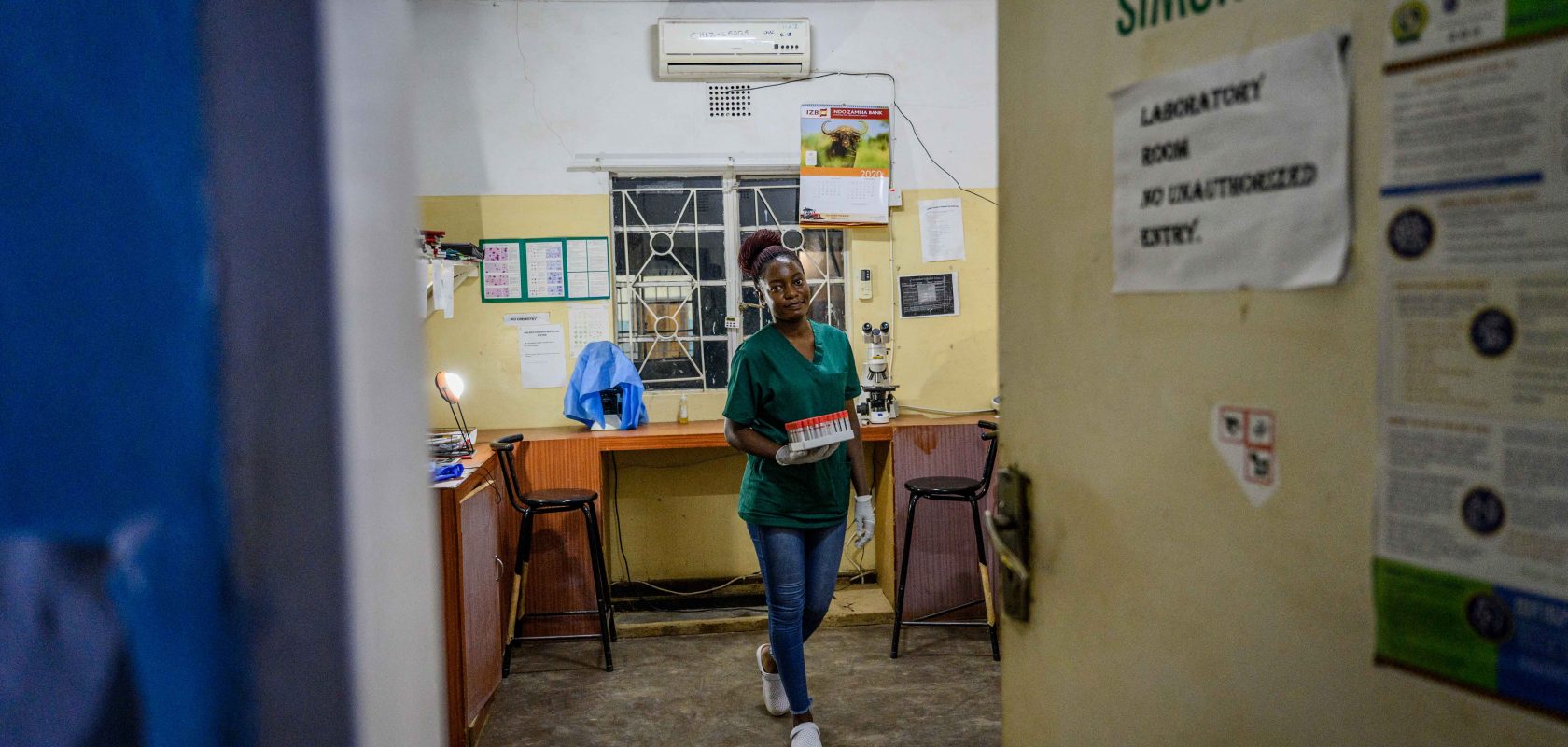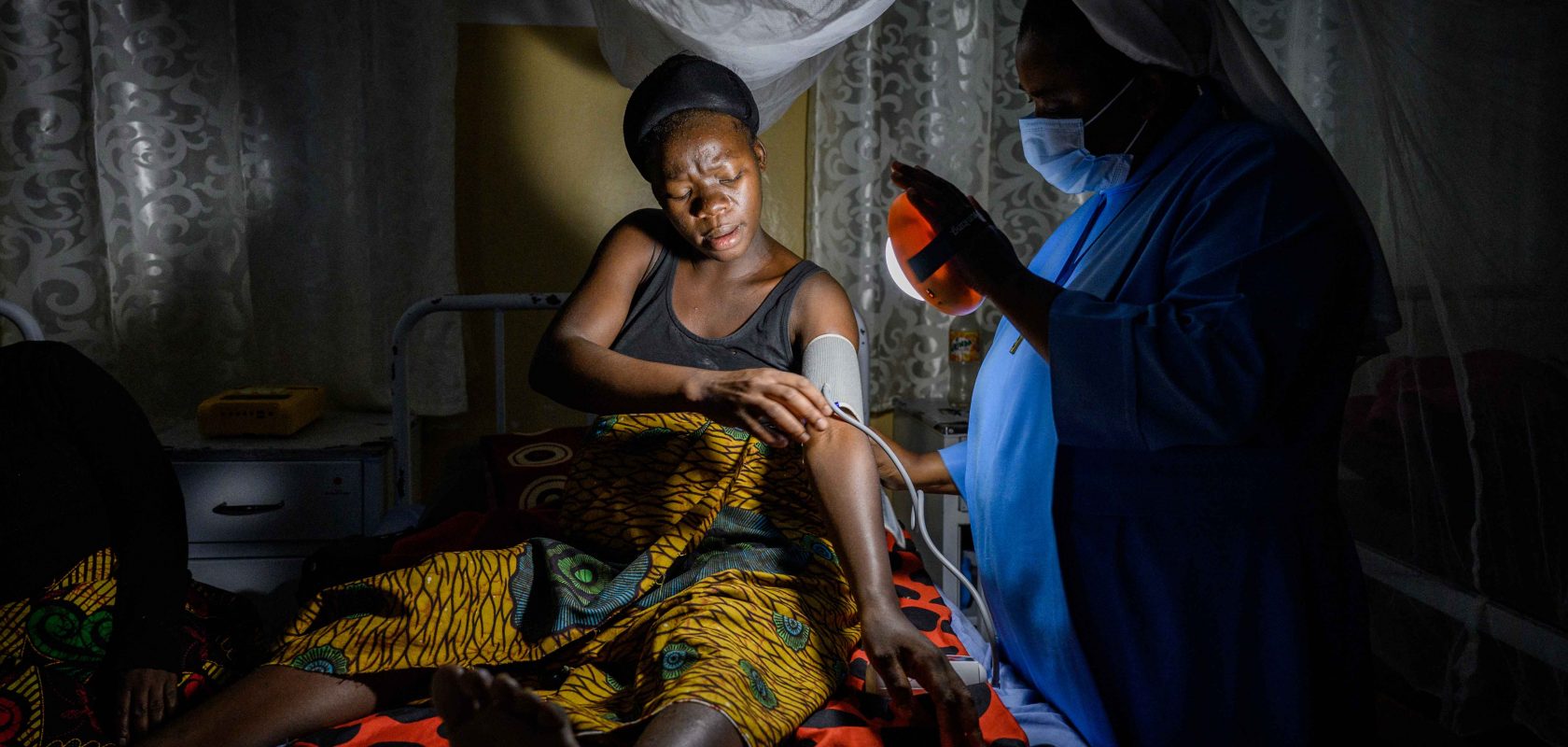Marianne Mwale has been a laboratory technologist at St. Paul’s Mission Rural Health Centre in Zambia for three years.
The laboratory, made up of two staff members analyse around 100 different tests a day and they use sophisticated equipment and instruments to identify results. The most demanded tests are the malaria rapid diagnostic test and microscopy.

Marianne Mwale has been working as a laboratory technician for three years.
During the rainy season, St. Paul’s Mission Rural Health Centre has had problems with long power cuts making it a challenge for the staff to work at night. “We were having challenges with lighting because mostly when it is rainy season, we have these consecutive power cuts, so it was a challenge for us to work in the night without light. If power cuts, you are going through the night without power.”
“You can’t do anything. You need light to examine your patients, and for you to run lab test you need light. You can’t do anything, not even the simplest things you can do without light,” says Marianne. This is not an uncommon problem is sub-Saharan Africa, where it is estimated that 3 in 4 rural health clinics lack reliable access to electricity.
It is not only the laboratory that suffers from the prolonged power cuts, at many pregnancy wards, it is not uncommon to ask the patient to bring her own candle for delivery. “For nurses on night duty, especially when you have a labour without lighting and you will need to use phone torches. The light is not enough. Maybe the woman will need suture, how do you do that without enough light?”

Marianne Mwale with her colleague James at St. Pauls Mission Rural Health Centre in Zambia. The solar light is helping the staff to work during power cuts.
SolarAid distributed the latest plug-and-pay, PAYG solar systems accompanied by energy-efficient medical appliances to St. Paul’s Mission Rural Health Centre three months ago. Solar lights were installed at the laboratory, and at the children’s and maternity wards.
“Now, with the solar light, in the case that there is no power and the clinicians need a test to be run in the lab, I’m able to do that definitely no matter the time. I’ll have light there, and they’ll get their result, and the patient will be helped as quickly as possible,” says Marianne.
“The turnaround time for the results have reduced, in the sense that if they order for a test in the night time, I will be called in instead of work piling up in the morning waiting for the sunlight.”

No health clinic should be left in the dark. Support SolarAid, together we can light up clinics in the dark.

